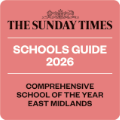
- Home
- Academic Excellence
- Subject Information
- Politics and International Relations
Politics and International Relations
BackStudying Politics and International Relations enables students of differing opinions and values to understand the world in which they live. Candidates will study political concepts, institutions, and ideas, to learn how they shape current affairs. The course encourages young people to become active citizens, providing them with a deep insight into the ever-evolving British and global political environments.
The Politics curriculum to help all pupils develop an interest in, and engagement with, contemporary politics to become active citizens.
In particular, the curriculum is designed to help students acquire:
-
An informed understanding of contemporary political structures and issues in their historical context, both within the United Kingdom (UK) and globally.
-
A critical awareness of the changing nature of politics and the relationships between political ideas, institutions and processes.
-
An informed understanding of the influences and interests which have an impact on decisions in government and politics.
-
An informed understanding of the rights and responsibilities of individuals and groups.
-
The ability to critically analyse, interpret, and evaluate political information to form arguments and make judgements on political issues.
Course Content
UK Politics and UK Government: Candidates will investigate how people and politics interact. They will study the emergence of the UK’s democratic system and the role political parties, pressure groups, and electoral systems play in political life. This component will examine the role of the media and analyse voting patterns and voting behaviour. Candidates will also learn how UK government operates; they will study the constitution of the UK, the role of different branches of government, such as Parliament and the Prime Minister, and how their relationship has evolved over time.
Political Ideas: Candidates will examine some of the ideas that have shaped our world, including Liberalism, Socialism, Conservatism, and Nationalism. Candidates will learn how these ideologies relate to human nature, the state, society and the economy. Candidates will also learn about the key individuals behind these political movements, from Edmund Burke to Karl Marx.
Global Politics: This comparative component gives candidates an opportunity to explore how global issues of terrorism, economic instability, failing states, and environmental degradation are addressed through international organisations. It also gives pupils the opportunity to study the impact of changes in the global balance of power between superpowers, such as the USA, and emerging powers, such as India and China.
Assessment
|
|
|
|
| 33% grade / 2 hours | 33% grade / 2 hours | 33% grade / 2 hours |
|
|
|
Exam Board: Edexcel (Politics)
For further details, please visit: Edexcel AS & A level Politics (2017) | Pearson qualifications



